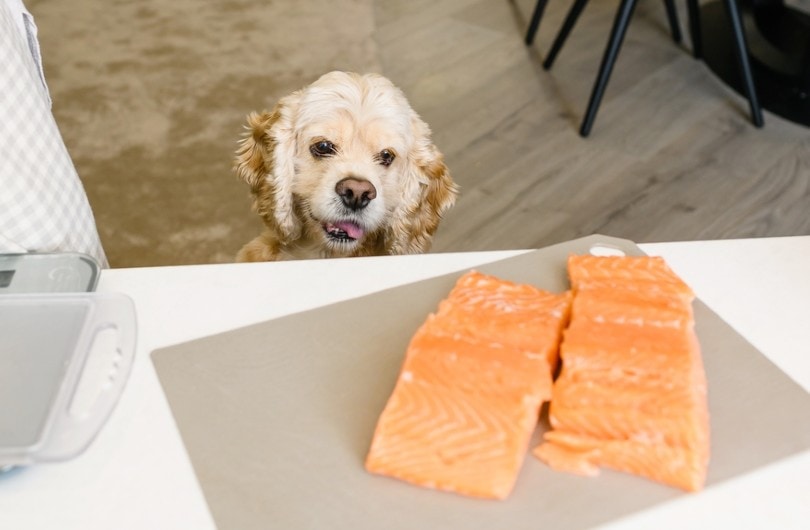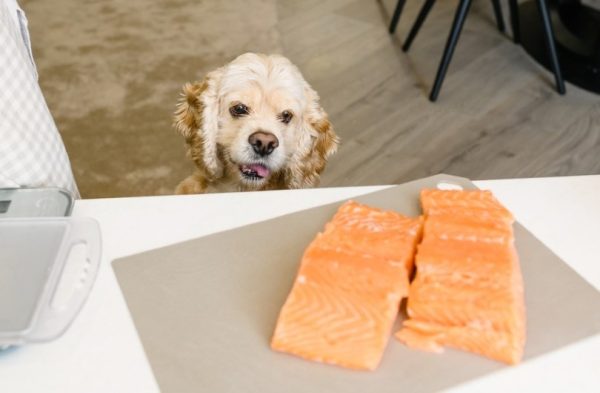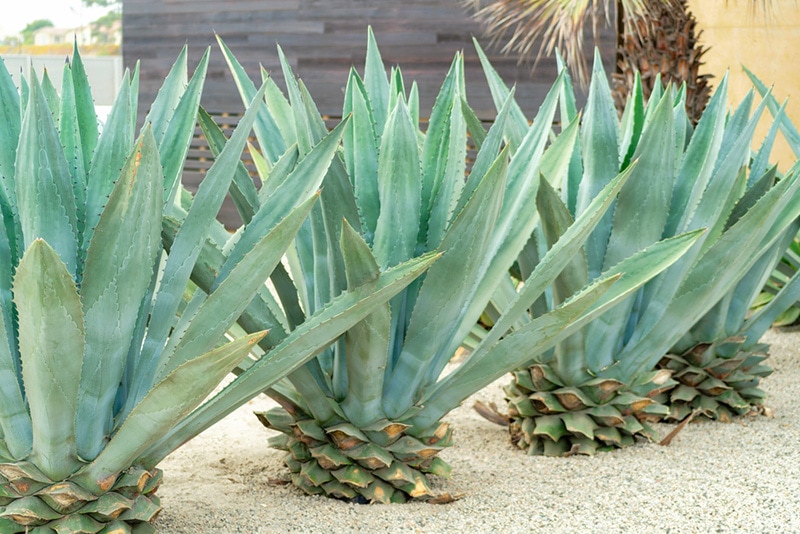Protein is the single most essential element in dog food, so how do you pick the right one? With options like chicken, fish, beef, and salmon in dog food recipes, it is important to know their characteristics and what to choose. Salmon is not only healthy for dogs—it can be a really nourishing protein for sensitive pups. So, salmon is an excellent example of a commonly selected protein with several health benefits. Let’s learn more.
What Is Salmon and Why Do Pet Food Companies Use It?
Salmon is a fish native to the North Atlantic and Pacific oceans. It is a very readily available protein source in many recipes of various brands of dog food—there is no shortage. Salmon are fresh and saltwater fish that are both abundant and nutritious for humans and pets alike.
Due to its availability and nutritional perks, many pet food companies choose to incorporate it into their ingredients list. You often see salmon as the main ingredient, but it could also be a secondary ingredient to another protein source.
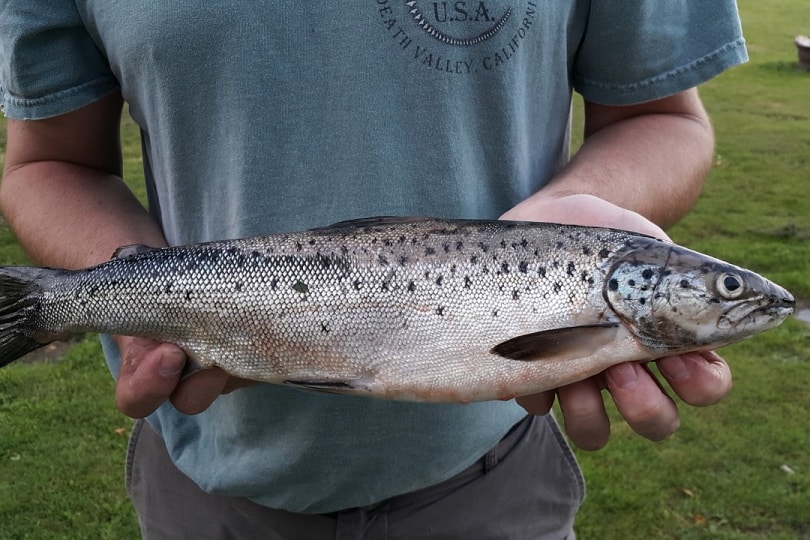
Skin & Coat
Because of its high omega-3 fatty acid content, salmon nourishes the coat and skin. It nourishes and restores the skin, creating a lustrous, shiny coat. It’s often used in recipes for dogs who have skin problems.
Dogs with dry, itchy skin can benefit from switching to a salmon-based diet.
Sensitive Stomach
You might see salmon in some sensitive stomach recipes. It tends to be easily digestible and agreeable and is especially beneficial for dogs who have developed sensitivities to other food sources.
Alternative Protein Source
If your dog is sensitive to specific ingredients in common commercial dog foods, they might need a novel or limited-ingredient diet. Unless their trigger is this fish, salmon is a trusted main ingredient for these recipes.
Top 4 Salmon Health Benefits
Salmon is full of health benefits to nourish your dog’s body.
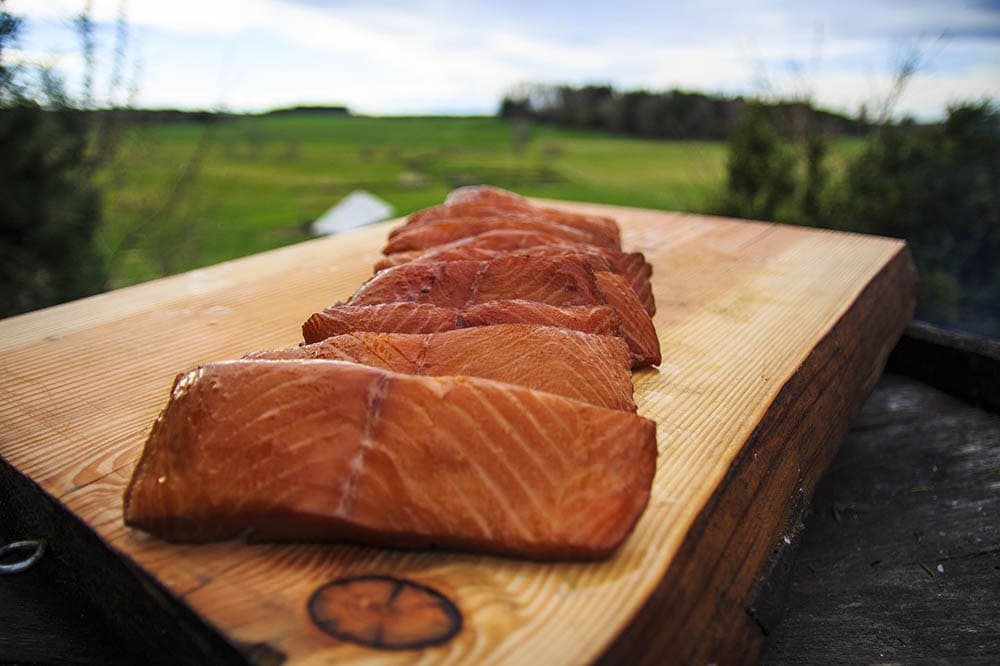
1. Omega 3 Fatty Acids
Salmon is chock full of omega-3 fatty acids. These healthy oils provide several benefits, such as protecting the heart and lubricating joints and ligaments. They also have an antioxidant and anti-inflammatory effect. They keep the skin nourished and radiant.
2. Anti-Inflammatory Properties
Since salmon naturally contains omega-3 fatty acids, it has a fair amount of DHA and EPA. These same omega-3s can reduce inflammation and joint pain.
3. Fat-Soluble Vitamins
Salmon contains fat-soluble vitamins, too. Here are the main ones, along with the benefits.
- Vitamin A for bone and immune health
- Vitamin D regulates calcium absorption
- Vitamin E for skin and coat health
Salmon Health Considerations
Because salmon is a pretty prevalent protein in dog foods, it can lead to protein allergies. If you feed your dog a commercial dog food with salmon as the primary protein and notice allergy signs, it might be time to look for another option.
- Excessive itchiness
- Recurring ear infections
- Recurring yeast infections on the skin
- Lack of appetite
- Nausea
- Vomiting
- Constipation/diarrhea
Work with your vet to determine the underlying cause if a food allergy is suspected. You might have to go through food trials to get to the bottom of it.

Raw Salmon: Is It Safe?
Raw dog food is starting to take the world by storm. It creates a more authentic diet to appeal to their natural roots. But is it okay to feed your dogs raw salmon?
You should never give your dog raw or undercooked salmon due to health risks. Raw salmon can carry the parasite fluke Nanophyetus salmincola. This parasite is generally harmless to dogs unless it is infected with a bacteria called Neorickettsia helminthoeca, which is responsible for salmon poisoning in dogs, it could make your dog very sick.
Salmon in Dog Food: Final Thoughts
We hope we have answered all your salmon-related questions. Now it might be easier to decide to put salmon in your dog’s daily food dish. Salmon has its perks—full of omega-3 fatty acids, vitamins, and minerals. Plus, if you have a sensitive pooch, switching to this protein might be a good move.
Only you can decide if this is right for your dog. If you have any questions about salmon, speak with your vet.
See also:
Featured Image Credit: O_Lypa, Shutterstock

